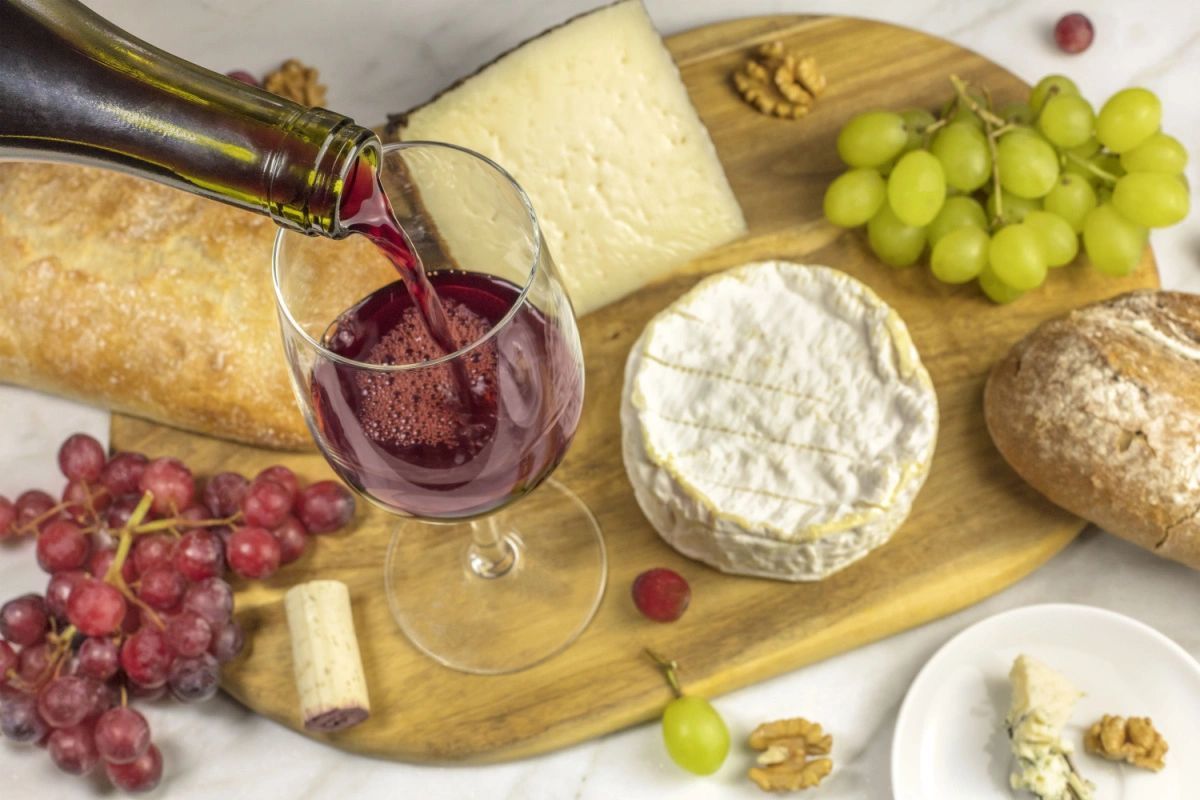
There’s no doubt that wine is one of humanity’s oldest favorite beverages — it’s been enjoyed by cultures across the globe for thousands of years. While most people are content with simply finding the best-tasting wine, there are actually many more benefits to this beverage than tastebud tantalization. In fact, wine has some surprising health benefits. Enjoying certain types of wine in moderation (one drink a day for women and up to two drinks a day for men) can improve your heart health, brain function, and more. So let’s raise a glass and explore the hidden health benefits of wine!
Heart Health
Wine isn’t just delicious. When enjoyed responsibly as part of a balanced diet, it’s heart-healthy, too! In multiple scientific studies, drinking red wine has been shown to have positive effects on heart health. This is due to a phenolic compound called resveratrol, which is found in grape skins. Resveratrol has been shown to improve circulation and blood flow, prevent damage to blood vessels, reduce LDL levels, and fight inflammation.
LDL stands for Low-Density Lipoprotein, commonly known as "bad cholesterol." LDL cholesterol can build up in the walls of arteries, leading to atherosclerosis, a condition that increases the risk of heart disease and stroke.
One 2005 study published by the American Heart Association found that moderate red wine consumption may reduce the risk of heart disease by up to 30%. Another 2012 study, also published by the ADA, found that it may reduce the risk of stroke in women. So, if you’re looking to protect your heart, an occasional glass of red wine may be just what the doctor ordered!
Cancer Protection
While excessive alcohol consumption can lead to an increased risk of certain cancers, moderate wine consumption may actually help reduce the risk of developing them. Resveratrol has been theorized to have anti-cancer properties, particularly when it comes to breast, colon, and prostate cancer. In addition to resveratrol, wine also contains antioxidants that can help protect cells from damage and reduce the risk of cancer. So, while it’s always important to drink in moderation, drinking small amounts of red wine with dinner may have some unexpected cancer-fighting benefits.
Brain Benefits
As we age, our brains naturally decline in function. But moderate wine consumption may help slow this decline. A 2016 study published in the STEM journal IOS Press found that moderate wine consumption may reduce the risk of dementia by up to 23%.
Resveratrol has been shown to improve blood flow to the brain, which can help prevent cognitive decline. In addition, the phenolic compounds present in wine have been shown to reduce platelet aggression, which can lead to the formation of blood clots.
Which Wines Are Healthiest?
While all wine contains some level of resveratrol and antioxidants, not all wine is created equal. Red wine, in particular, has higher levels of resveratrol than white wine. So, if you’re looking for the most health benefits, opt for a glass of red.
If you’re really looking for the healthiest wine around, also take some time to research where your wine came from. Organic and biodynamic wines often have higher levels of antioxidants than conventionally produced wines because they’re made using natural farming methods and have fewer additives.
Moderation Is Key
While moderate wine consumption can have some surprising health benefits, it’s important to remember that too much of a good thing isn’t good for you. Excessive alcohol consumption can lead to liver disease, certain cancers, and many other health problems. And, of course, wine isn’t the only way you should care for your body and mind. Eating a balanced diet, exercising regularly, and getting enough sleep are also important for overall health and well-being.
Sip Something Amazing!
Ready to experience something delicious (and nutritious!) for yourself? Schedule a wine-tasting tour at Jonathan Edwards Winery today, or stop by a local Massachusetts wine retailer, such as Amazing Grapes Norwich, to find wonderful wines made right here in our vineyard! We’re looking forward to hearing from you soon.
Categories
Sign up for blog updates!
Join my email list to receive updates and information.
Contact Us
We will get back to you as soon as possible.
Please try again later.
Recent Posts










